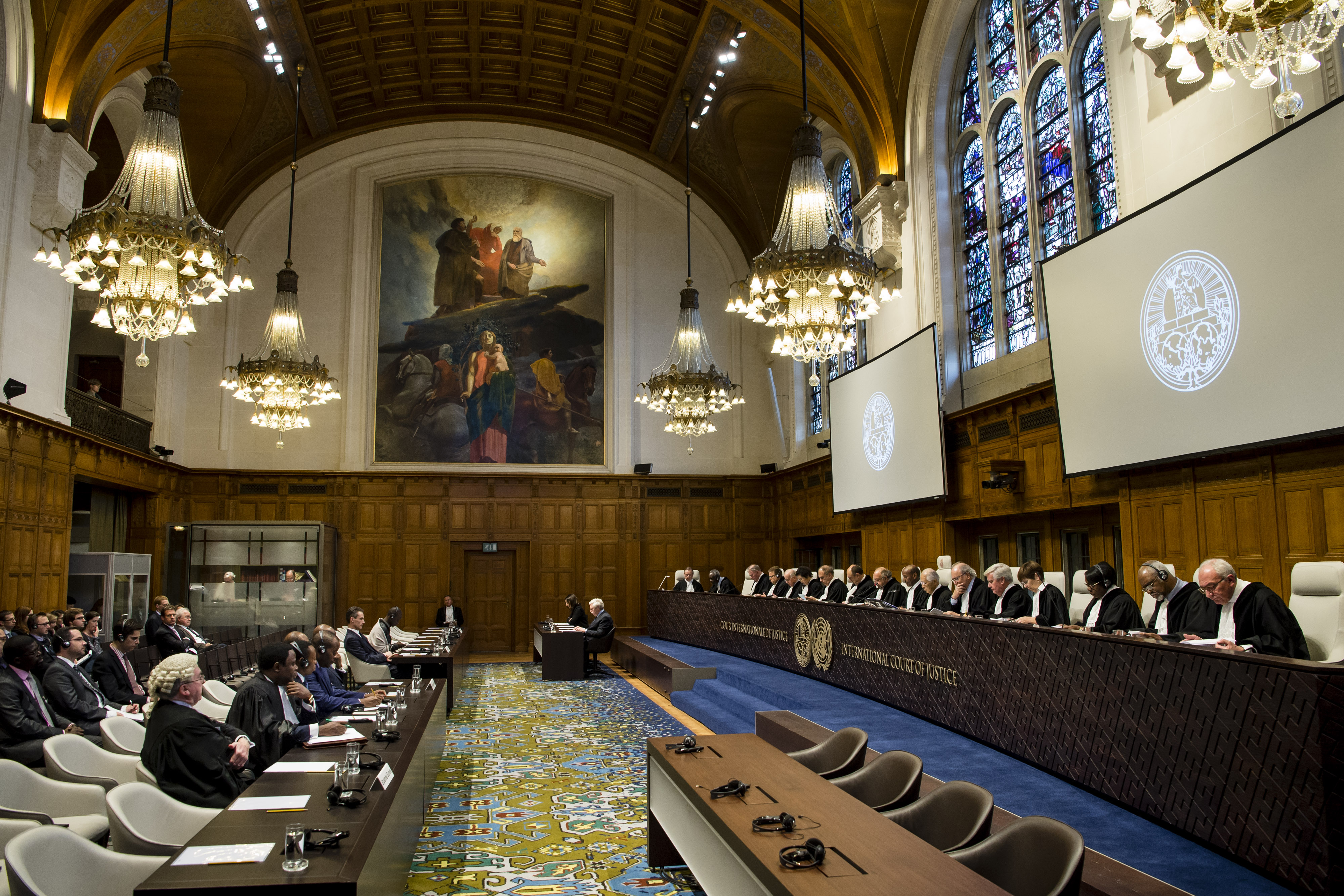The Middle East Ticker
International Criminal Court preparing to send an investigative team to Israel: The Israeli daily Haaretz reports that the ICC’s Prosecutor’s office is preparing to send a team to Israel as parts of its preliminary inquiry into possible war crimes during this past summer’s Gaza war. The report, which is based on high level Palestinian sources, claims the envoys are due to arrive on June 27th.
Published by The Lawfare Institute
in Cooperation With

International Criminal Court preparing to send an investigative team to Israel: The Israeli daily Haaretz reports that the ICC’s Prosecutor’s office is preparing to send a team to Israel as parts of its preliminary inquiry into possible war crimes during this past summer’s Gaza war. The report, which is based on high level Palestinian sources, claims the envoys are due to arrive on June 27th. Given Israel’s staunch objections to Palestinian accession the ICC and to the legitimacy of the inquiry altogether, it remains unclear how and whether the Israeli government would cooperate.
After attempted FIFA ouster, renewed Israeli focus on delegitimization: In Israel, the major soccer news was less the mass arrests of FIFA’s senior leadership and more the concerted (but ultimately unsuccessful) attempt to suspend Israeli soccer teams. The push was led by Palestinian Football Association chairman Jibril Rajoub, currently one of the most powerful figures within the Palestinian Authority and a person to watch as a potential successor to Mahmoud Abbas. But the suspension attempt has also had a ripple effect, rekindling Israeli concerns over Palestinian attempts to isolate Israel internationally and economically. On the Israeli left, these concerns trigger calls for a more proactive Israeli stance toward negotiations; and on the right, the concerns have led to calls for more aggressive explanations of Israel’s predicament.
Proposed Israeli legislation seeks to limit foreign funding of NGOs: Ayelet Shaked, Israel’s controversial new Justice Minister, is drafting legislation to disrupt the operation of NGOs that "erode the legitimacy of Israel to exist as a Jewish and democratic state". Although the legislation is still in the works, previous versions proposed heavy taxes on foreign donations unless the receiving organization wins approval from a special panel staffed by the defense and foreign ministries. The proposals have already drawn sharp protests from the Israeli left and human rights community and are unlikely to pass anytime soon. But as concern over delegitimization efforts abroad grow, support for similar proposals will only grow, too.
Lengthy profile of former chief Israeli military lawyer Menachem Finkelstein: The Israeli Military Advocate General’s office has published an exceedingly long and detailed (Hebrew) profile of Finkelstein, the Major General who served as Military Advocate General during the height of the second intifada. For those with Hebrew language skills, it’s well worth the read. Highlights include Feinstein’s roles in the landmark (“Enkonina”) Supreme Court case defining criminal liability for a soldier’s use of lethal force, and in establishing Israel’s targeted killing policy.
Terror in Luxor, Egypt—again: A terrorist attack at the ancient Egyptian Karnak temple in the city of Luxor was thwarted by Egyptian security forces on Wednesday, according to a statement on the Egyptian Ministry of Interior’s Facebook page. Two of the militants were killed when a bomb one of them was carrying blew up; a third was injured by gunshots to the head. The interior ministry stated that the attack also left one of the temple staff injured but caused no casualties among temple visitors or security forces; however, Ahram Online reports that a spokesman for Egypt’s health ministry told them that five people had been injured, including both civilians and members of security forces. So far, no one has claimed responsibility for the attack, but it is reminiscent of the 1997 attack on the Temple of Hatshepsut in Luxor in which Islamist militants affiliated with al-Gama’a al-Islamiyya (the Islamic Group) and Egyptian Islamic Jihad shot their way into the temple and killed 62 people, most of them foreign tourists. The latter group was led by now-Al Qaeda emir Ayman al-Zawahiri who formally merged the group with Al Qaeda in 2001. In 1999, the Islamic Group’s leadership announced a unilateral ceasefire and in 2002 began publishing a series of tracts renouncing violent jihad.
A US drone strike in Yemen has reportedly killed three suspected members of Al Qaeda in the Arabian Peninsula (AQAP): The drone strike occurred late Tuesday in the southeastern port city of Mukalla, which has been under the control of AQAP since April. According to a local official who spoke with Agence France-Presse, one of the three killed was a “leading figure” within the organization, though he declined to provide a name. Amidst the chaos of the Yemeni civil war and the Saudi intervention in it against the Houthi rebels, the US has continued to carry out targeted drone strikes against AQAP, the Al Qaeda affiliate that US officials consider to be the most dangerous offshoot of the core organization in large part because of its repeated attempts to launch terrorist attacks inside the United States and Europe.
Bahrain’s minister of foreign affairs summons the Iraqi ambassador: Minister of Foreign Affairs Shaikh Khalid Bin Ahmad Al Khalifa summoned the Iraqi ambassador and handed him an official letter of protest calling on the government of Iraq to “take all the necessary measures to prevent any form of interference in the domestic affairs of the Kingdom of Bahrain” and “to put an end to the terrorist groups that use the Iraqi territory to threaten the safety and security of the Kingdom of Bahrain by recruiting, training and inciting terrorists to commit criminal acts inside the Kingdom.” As reported by the Bahrain News Agency, “The minister’s call came after it has been proven that the terrorists of the so called ‘Al Ashtar Brigades’ have received training on the use of arms and explosives at the hands of ‘Hezbollah brigades’ in Iraq.”





.png?sfvrsn=35857ae0_5)
